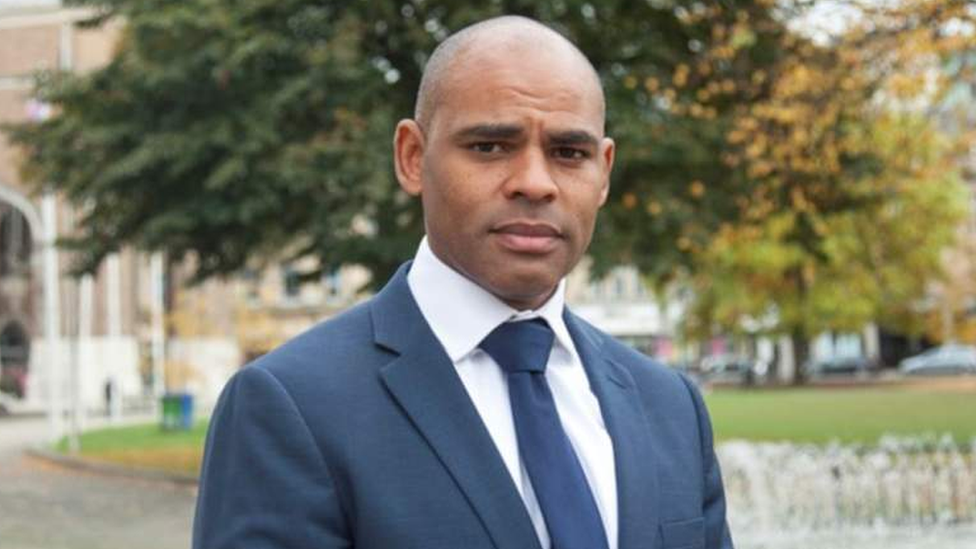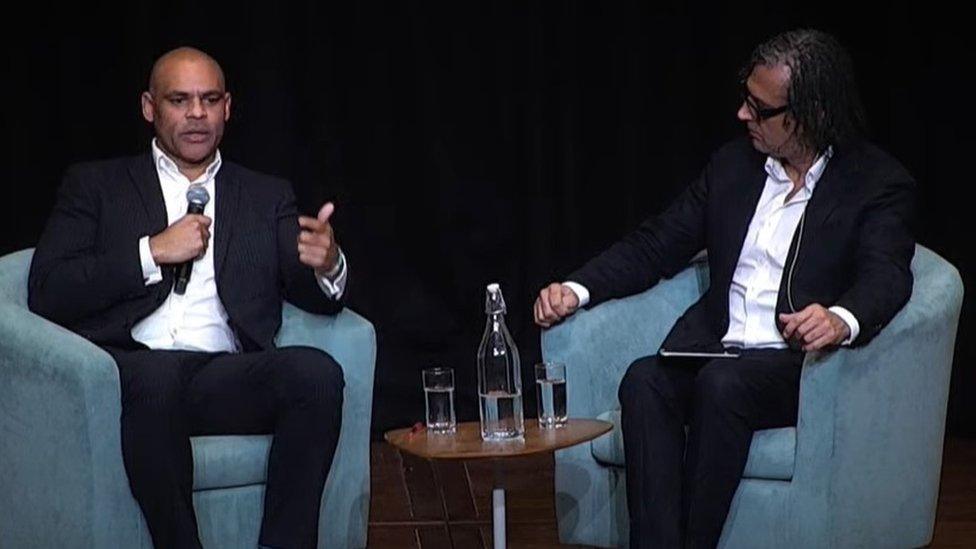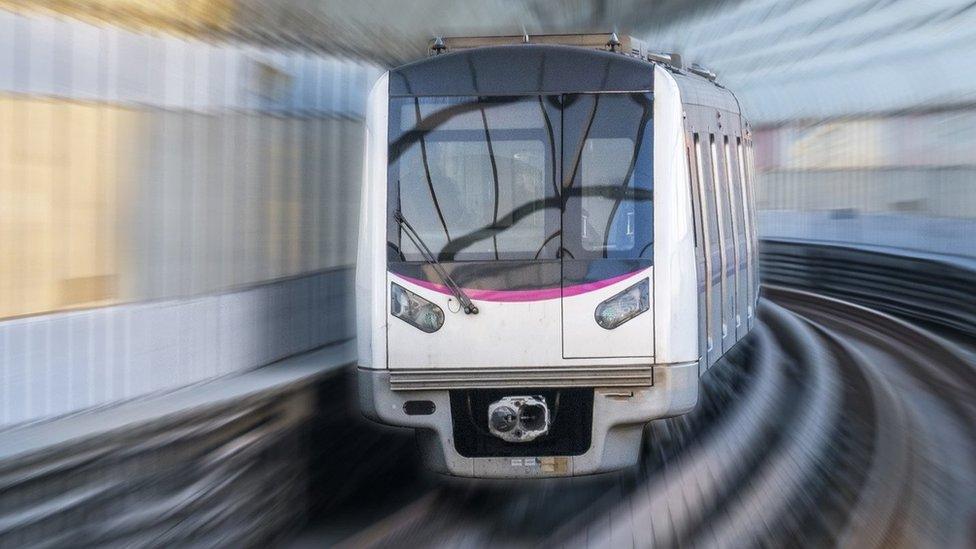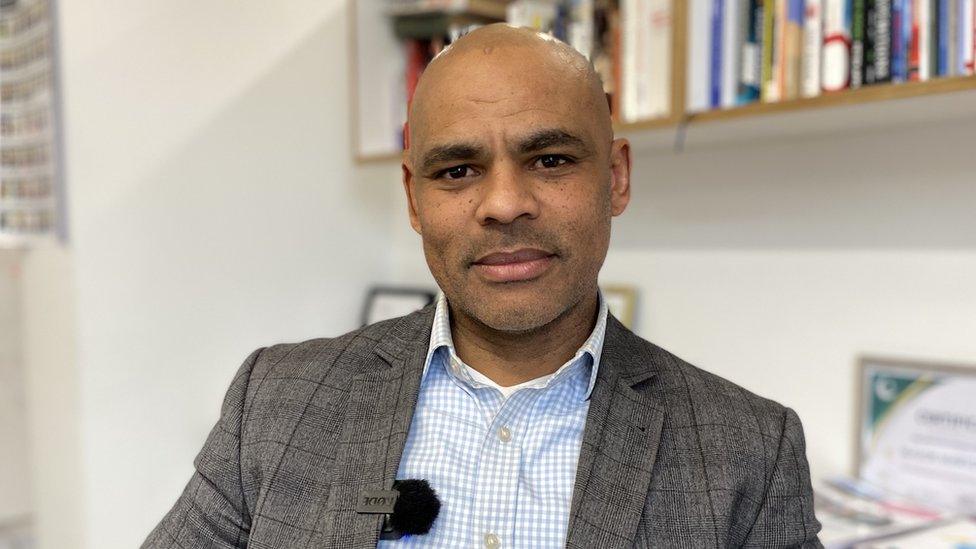Marvin Rees says Bristol has ‘debilitating cynicism' in final speech
- Published

Mr Rees said Bristol needs to solve "the transport problem"
Bristol's mayor said the city has a "lack of self-belief" and "debilitating cynicism" in his final speech.
With fewer than 50 days left in office, Marvin Rees gave new housing as one of his best achievements but criticised a lack of progress on mass transit plans.
Speaking at the Bristol Beacon on Wednesday he also explained how he sympathised with the Cenotaph counter-protesters more than the Colston Four.
Mr Rees was first elected as Bristol's Labour mayor in 2016.
Since he took on the role the council has spent millions on temporary accommodation, the Local Democracy Reporting Service said.
But Mr Rees explained how more affordable housing has been built this year than in the last two decades.
He said 14,500 homes "will have been built since 2016 including many affordable and social".

After the speech he took questions from historian David Olusoga (right) and the audience
Speaking more widely, he said Bristol was "a city of contradictions".
"Among them is the way we combine being home to some of the nation's leading talent, a thriving creative sector and a high number of business start ups — with a collective lack of self-belief that, when it's full blown, turns into a debilitating cynicism," he said.
"We've seen this clearly around mass transit. We must solve the transport problem and that simply must include underground."
Plans for underground rail were first proposed by Mr Rees back in 2017 but on Tuesday, Bristol's head of transport warned underground rail in the city would be "almost terminal".
Race and class
The mayor also spoke about growing up in Bristol and facing racist abuse.
He gave an anecdote of being chased as a teenager by a dozen white men, then later being supported in 2012 by a "big white guy" in Lawrence Weston with tattoos and a shaved head.
"My experience in the city through the prism of race and class has left me with a greater sense of belief in the authenticity of some of the Merchant Venturers than in some of the noisiest anti-racism and social justice activists," he said.
The Society of Merchant Venturers is a local charity dating back to the 13th Century which had slave trader Edward Colston among its members.
"It's left me feeling a greater sense of connection with the Cenotaph counter-protestors than I do with the Colston Four," Mr Rees said.
In June 2020, around 400 football fans, war veterans and bikers turned up in the city centre to "protect" its war memorial.
They greatly outnumbered a group of Black Lives Matter protesters, who were demonstrating a week after a statue of Colston was toppled just a few yards from the monument.
After the speech he took questions from historian David Olusoga and the audience, including some on his views on local journalism.
He criticised a lack of diversity and job cuts in the industry.
"Starting to write stories about black people is not employment. If you're serious, start giving jobs," he added.
Looking to the future, Mr Rees said he would be keen to continue his work in city finance, housing and decarbonisation, "be it political or otherwise".

Follow BBC Bristol on Facebook, external, X, external and Instagram, external. Send your story ideas to us on email, external or via WhatsApp on 0800 313 4630, external.
Related topics
- Published12 March 2024

- Published28 February 2024
